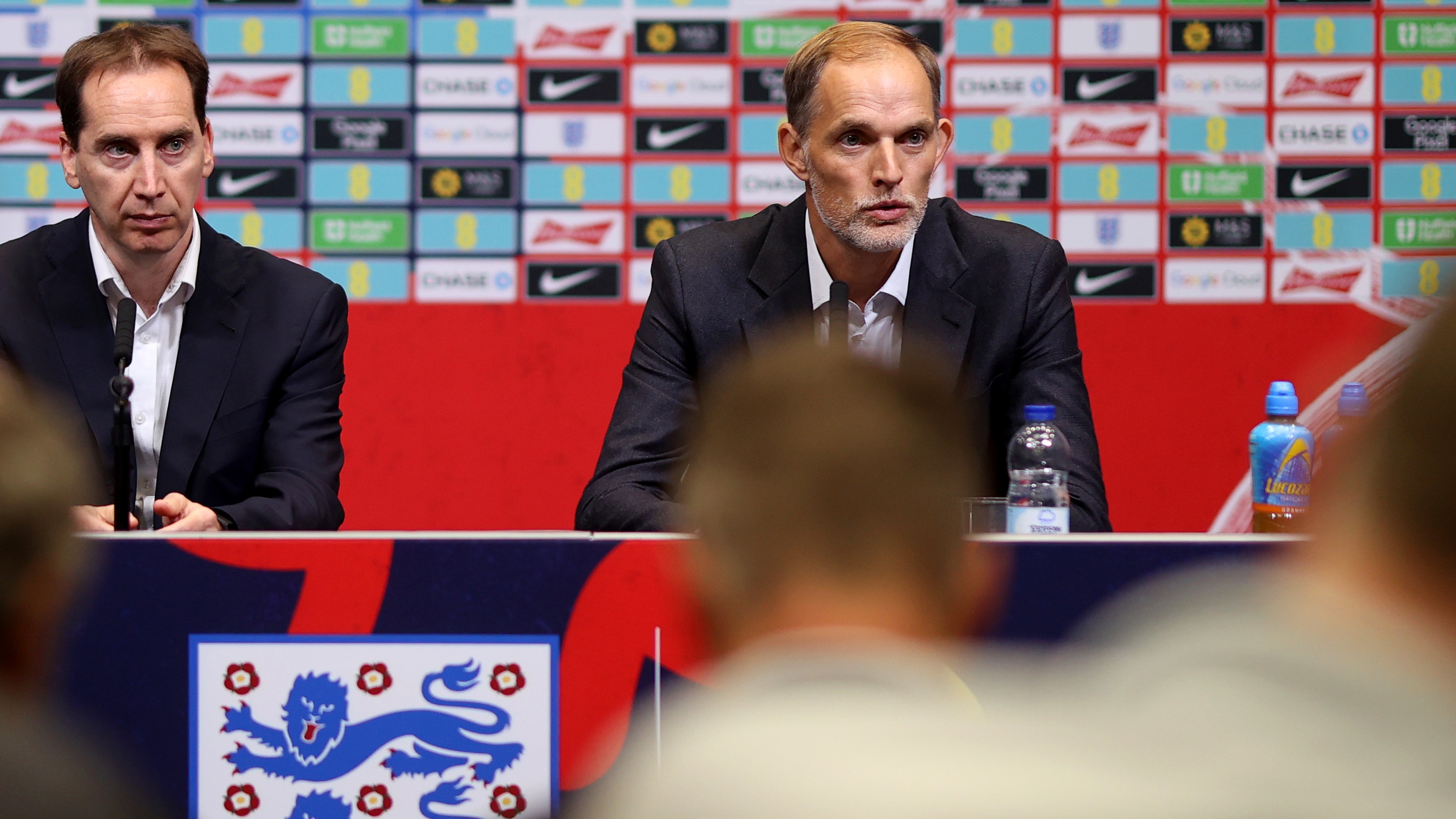For many, the Premier League is the best there is. England’s national team is considered among Europe’s elite, and the country itself is a hotbed of extraordinary talent. English clubs consistently aim for the top of the Champions League, and six English players were on the 30-man shortlist for the Ballon d’Or this year.The national team, featuring stars like Harry Kane, Phil Foden, Jude Bellingham, Bukayo Saka, Cole Palmer, and Declan Rice, undeniably boasts player quality. However, England faces significant long-term issues in coaching. The appointment of Thomas Tuchel as the next England manager, effective January 1, 2025, reflects the challenges faced by one of the world’s most football-centric nations.As the crown jewel of European leagues, the Premier League should theoretically produce England managers. However, this is not happening. The elite league lacks homegrown managers who can compete for titles and build strong resumes to earn the top job with the Football Association (FA). After Gareth Southgate’s eight-year tenure, during which he rose from a modest Premier League coach to lead England, the FA reviewed ten candidates. Yet Tuchel’s impressive credentials overshadowed contenders like Graham Potter, Frank Lampard, Eddie Howe, and Scott Parker.All four of those coaches were seen as promising English projects. Potter and Lampard struggled to prove their mettle at Chelsea, while Howe, once England’s brightest coaching prospect, spent too long at Bournemouth (2012–2020), missing the chance to grow in a more challenging environment.##NAJAVA_MECA_8514966##This lack of top-tier English managers in the Premier League extends to the national team. Since the Premier League’s inception in its modern format, no English manager has won the league. The last domestic coach to secure the English title was Howard Wilkinson with Leeds United in the 1991/92 season. Since then, the champions have been led by Scots, French, Portuguese, Italians, a Chilean, a Spaniard, and a German.The Premier League currently has only three English managers. Eddie Howe has Newcastle in a respectable 8th place, just one point behind third-placed Chelsea. Meanwhile, Sean Dyche’s Everton sits 16th, and Gary O’Neil’s Wolves are in 19th. In contrast, other top European leagues embrace domestic managers:La Liga: 15 Spanish managersBundesliga: 9 German managersSerie A: 16 Italian managersLigue 1: 10 French managersPremier League: 3 English managersWhile Wenger and other foreign coaches brought tactical evolution to England, they may have inadvertently contributed to the decline of English coaching. Today, the Premier League is managed by five Spaniards, three Portuguese, and coaches from various other nationalities.##EDITORS_CHOICE##England’s lack of top-tier coaches is not just a cultural issue but also a systemic one. For example, there are only 200 UEFA Pro License holders in England, compared to 2,000 in Spain and 1,000 in Germany. Additionally, acquiring a Pro License in England costs £13,700 (€16,500), whereas in Spain, it is only €1,000 per year.This disparity limits the development of English coaches and reduces their representation in the elite tier. Former interim England manager Lee Carsley emphasized that British coaches need more opportunities in the Premier League. Yet England continues to rely on foreign managers, a strategy that failed with Sven-Göran Eriksson and Fabio Capello. If Tuchel doesn’t succeed, it will serve as a stark warning to redirect development efforts towards creating a strong pipeline of homegrown coaches.The appointment of Tuchel has divided public opinion. While Tuchel declared, “I hope to prove my pride as England manager,” the Daily Mail countered with a dramatic headline: “A Dark Day.” The message was clear: “We don’t need Tuchel. We need a patriot who will put this country first.”Some believe Gareth Southgate embodied that patriotism. He restored England to the European elite with a World Cup semi-final and two European Championship finals. Yet, he didn’t “bring football home.” Public opinion remains polarized about his tenure.Who will be Inter Miami’s next boss? Top candidates to lead Lionel Messi and Co.The FA launched a detailed national development strategy two years before Southgate’s appointment. However, it focused on player development rather than equally prioritizing coaching. The career trajectory of Graham Potter, once hailed as a great hope, illustrates this imbalance. After being sacked by Chelsea in April, the 49-year-old is now unemployed.If the current trend persists, England risks losing its identity as a footballing powerhouse. Developing domestic coaches should be at the core of the FA’s strategy. Otherwise, the continued reliance on foreign managers like Tuchel may lead to more dark days for English football.

